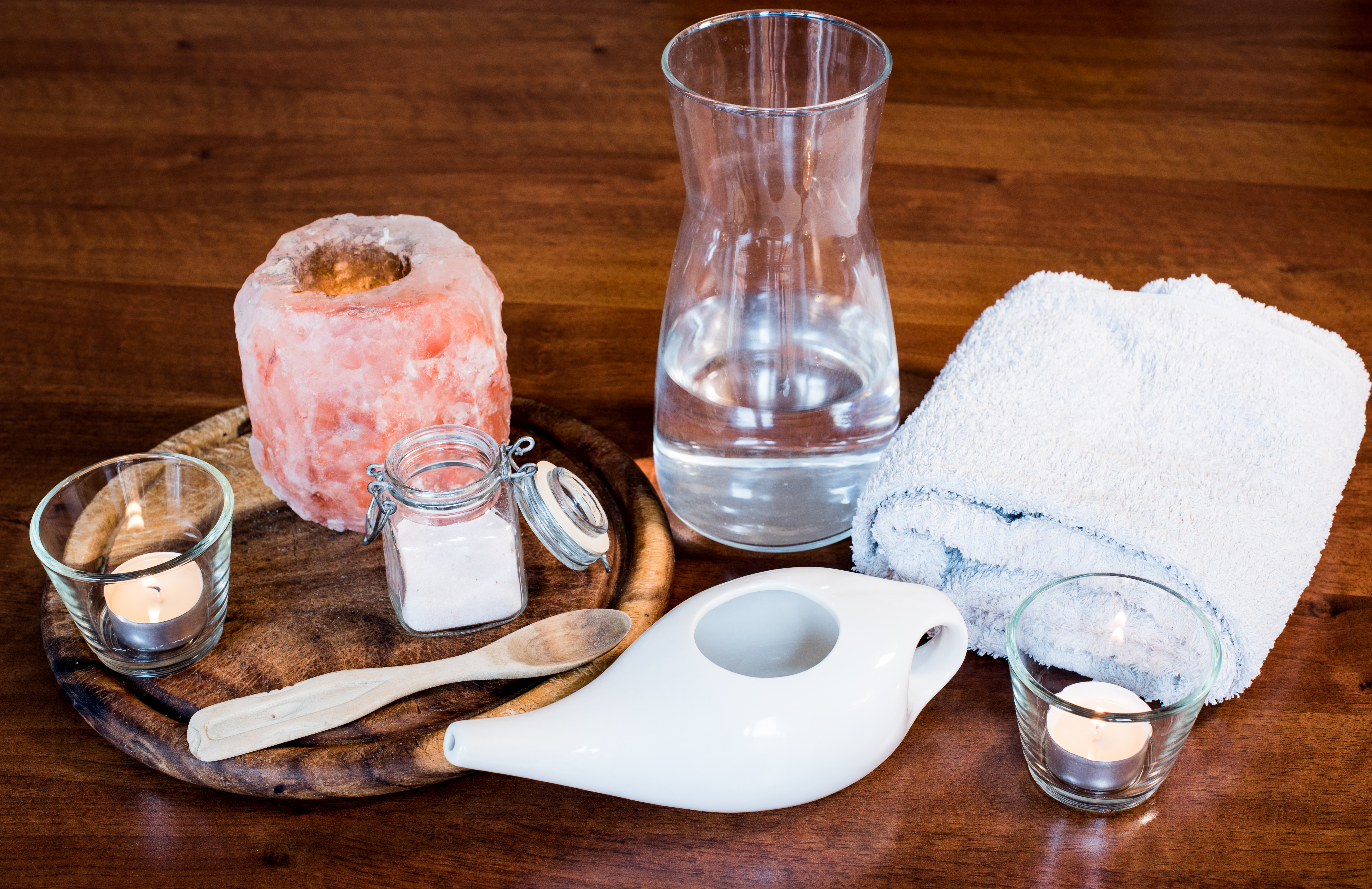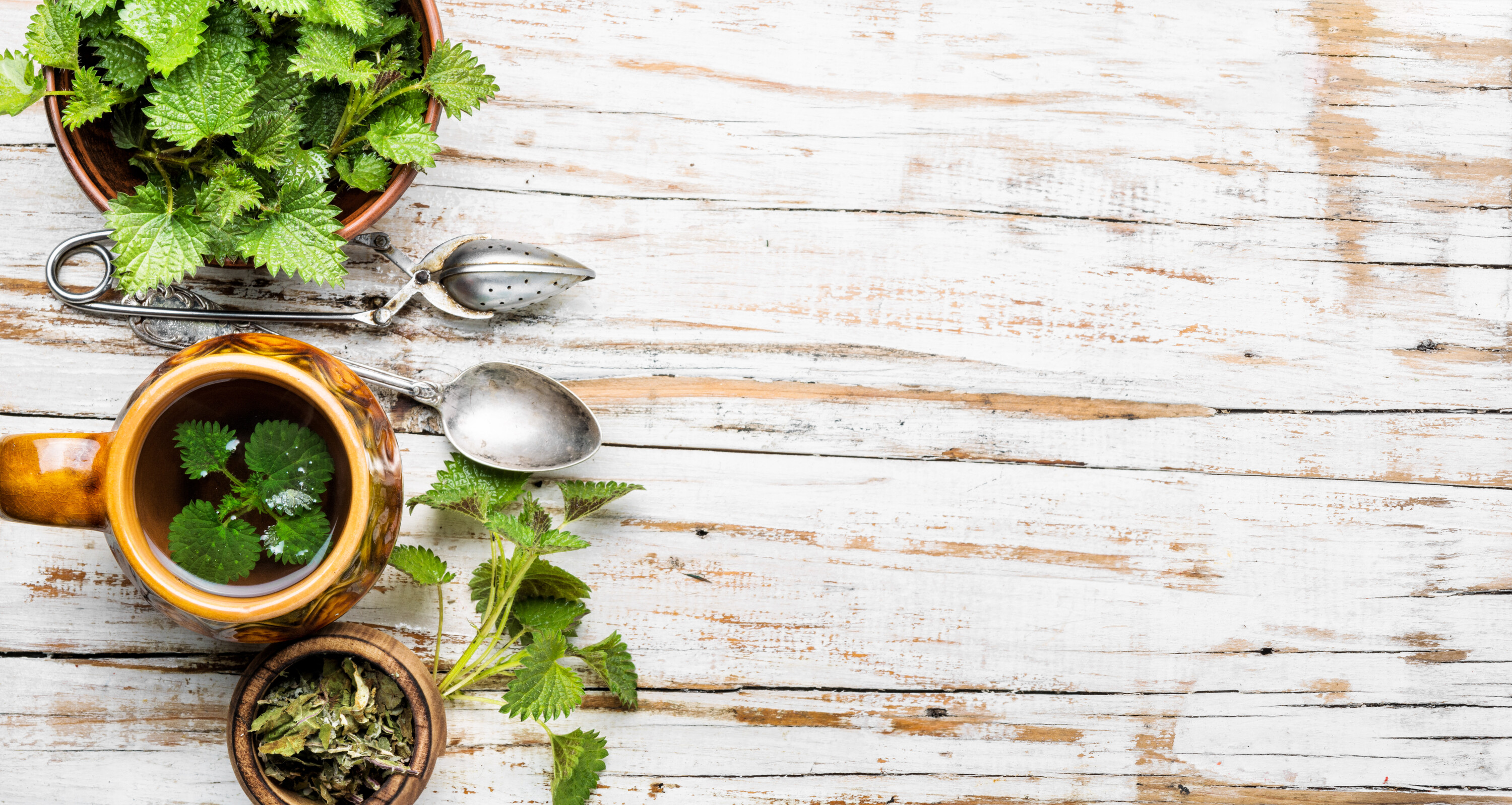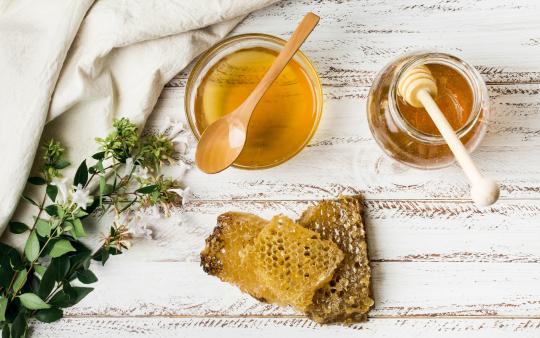The flowers are blooming, the birds are chirping, and the air has a magical freshness to it. But for some people, spring brings more than just fresh air and sunshine—it also comes with sneezing, runny noses, itchy eyes, and the many other symptoms that are seasonal allergies.
An allergic reaction occurs when the immune system reacts to an allergen (in spring, the culprits are usually airborne substances such as pollen from trees, grasses, and weeds). During this allergic response, the body starts to produce antibodies that trigger our mast cells to release chemicals like histamine, leading to inflammation and those pesky seasonal allergy symptoms. Typical treatments for allergies include a combination of antihistamines, decongestants, and corticosteroid treatments. While these interventions can be effective, they can leave some people feeling tired and finding it difficult to focus and concentrate.
Spring into these solutions!
While you can’t rule out seasonal allergies altogether, there are ways to support your body naturally that will help it to better respond to environmental allergens.
In Through the Nose
When molecules like pollen get into the nasal cavities they trigger an immune response. By clearing out the passages, the trigger will be reduced, and so will the response! This is where a neti pot or saline (a fancy word for salt water) nasal spray come in handy. While both can feel a little uncomfortable the first few times, they are very effective at cleaning out the nasal passage. Whichever option you choose, for best results, we recommend taking advantage of your morning shower’s heat and moisture to open your nasal cavities. You can flush right there in the shower! Tilt your head to one side and slowly squeeze the saline solution into one nostril. Allow it to pour out the opposite nostril and drain, trying not to let it run down your throat. Repeat on the opposite side. You may have to play around with tilting your head back a bit to get the saline to travel from one nostril to the other. Once finished, give your nose a gentle blow to clear out any remaining mucous.

Rainbow Refreshments
The bright colours in many fruits and veggies come from a group of plant pigments called flavonoids. Flavonoids are referred to as nature’s biological response modifiers because of their amazing ability to modify the body’s reaction to things in the environment, including allergens. Their naturally occurring anti-allergic and anti-inflammatory properties make them a good choice at any time of year, but especially when allergies are high.
In the Gut
Gut health is a hot topic these days and for good reason! The gut microbiome plays a huge role in our immune response! Allergies may be linked to compromised gut health, as 70 percent of the immune system is believed to reside in the gut, and our gut bacteria are believed to be an integral part of the immune response. When experiencing an allergic response, consider adding in a probiotic with multiple strains of bacteria. Increasing the amount of fermentable fibres, such as beans, legumes and sweet potatoes also helps, as these are digested by our body’s good bacteria, and aids in the production of short chain fatty acids which help regulate the immune system.
Think Local!
There is some research showing that consuming raw honey produced in your area can help to teach your immune system to tolerate local pollens. Raw honey also contains beneficial bacteria, which is great for gut health.
Seasonal supplements
Here are a few seasonal supplements to be on the lookout for as the weather gets warmer:
Quercetin
Quercetin is a flavonoid found in foods like apples, black tea, grapefruit, and onions, and is an effective treatment for seasonal allergies, as it has been shown to inhibit mast cell secretions and has the ability to downregulate histamine production. Quercetin, available in both powder and capsule form, is often combined with bromelain, an enzyme found in pineapples, which contains anti-inflammatory properties and also helps to break up mucous.
Dosage: 200-500 mg, up to three times daily.
Vitamin C
Vitamin C acts as a natural antihistamine and is a powerful antioxidant which is able to combat the oxidative stress that plays a role in allergic diseases. While you can certainly eat your way to heightened vitamin C levels thanks to vitamin-C-rich foods like bell peppers, strawberries, broccoli, and citrus fruits, you can also take it therapeutically as a supplement.
Dosage: Studies show doses of 2000 mg daily are sufficient to help with decreasing histamine production.

Stinging Nettle
Stinging Nettle (Urtica dioica) is chock-full of nutrients and has many wonderful attributes including supporting seasonal allergies. It contains both natural antihistamine and anti-inflammatory properties both of which are great at easing those allergic woes. One of our favourite ways to enjoy stinging nettle is in the form of a nettle infusion: it’s super easy to make and has a nice, bright flavour!
Stinging nettle infusion Place 1-2 Tbsp of dried nettle, preferably organic and/or wild-sourced in a large 32 oz. glass jar. Add hot water and steep overnight. Strain and store in refrigerator until ready to use. Enjoy warm, cold, or at room temperature. Make multiple batches so you have a few ready to go!
Dosage: During allergy season, we recommend drinking 32 oz. of nettle tea daily.
We hope these suggestions can alleviate some of your seasonal allergies and allow you to enjoy your time outdoors!








